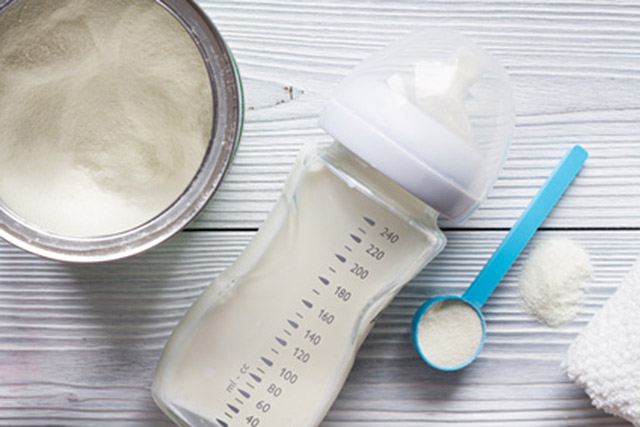Illegal amounts of arsenic were found in baby foods through research from the Institute for Global Food Security at Queen in the UK.
According to the British researchers, almost half of baby rice food products still contain illegal levels of the toxic chemical.
Professor Meharg, lead author of the study explained: “This research has shown direct evidence that babies are exposed to illegal levels of arsenic despite the EU regulation to specifically address this health challenge. Babies are particularly vulnerable to the damaging effects of arsenic that can prevent the healthy development of a baby’s growth, IQ and immune system to name but a few.”
Rice has been a controversial food lately because it can contain high levels of inorganic arsenic.
Babies are in a very important state of constant development, and can be more sensitive to the effects of arsenic. This chemical can cause developmental problems and may even cause health problems in the long run.
The research compared arsenic levels in urine samples of infants who were formula fed or breastfed before and after weaning. A higher concentration of arsenic was found in the samples of the formula-fed infants, especially those who were fed a non-dairy formula that was rice-fortified.
Rice based products are popular for babies during weaning, especially due to its nutrition and low potential for allergies.
Professor Meharg explained: “Products such as rice-cakes and rice cereals are common in babies’ diets. This study found that almost three-quarters of baby crackers, specifically marketed for children exceeded the maximum amount of arsenic.”
Previous research led by Professor Meharg showed how the simple process of percolating rice could remove up to 85 percent of arsenic.
Professor Meharg explains: “Simple measures can be taken to dramatically reduce the arsenic in these products so there is no excuse for manufacturers to be selling baby food products with such harmful levels of this carcinogenic substance.
“Manufacturers should be held accountable for selling products that are not meeting the required EU standard. Companies should publish the levels of arsenic in their products to prevent those with illegal amounts from being sold. This will enable consumers to make an informed decision, aware of any risks associated before consuming products containing arsenic.”
In April of last year, the FDA published a recommendation, urging manufacturers to reduce levels of arsenic in infant rice cereal.
The study showing that illegal amounts of arsenic were found in baby foods was published in the journal Plos One.
Note: None of the information in our website is intended to diagnose, treat, cure or prevent any illness or disease. The content on our website is for educational purposes only.
DON’T FORGET to sign up for our weekly newsletter to get our latest articles, updates, free recipes and giveaways.
FDA recommends reducing arsenic in infant rice cereal.
Babies given antibiotics have higher eczema risk.
Children are being poisoned by laundry detergent pods.
REFERENCES:
1. “FDA Proposes Limit for Inorganic Arsenic in Infant Rice Cereal.” U.S. Food and Drug Administration, n.d. Web. 07 Apr. 2016.
2. “Queen’s Research Shows Illegal Levels of Arsenic Found in Baby Foods.” Queen’s University Belfast. Queen’s University Belfast, 05 May 2017. Web. 06 May 2017.
3. “Levels of Infants’ Urinary Arsenic Metabolites Related to Formula Feeding and Weaning with Rice Products Exceeding the EU Inorganic Arsenic Standard.” PLOS ONE. Public Library of Science, n.d. Web. 06 May 2017.

















